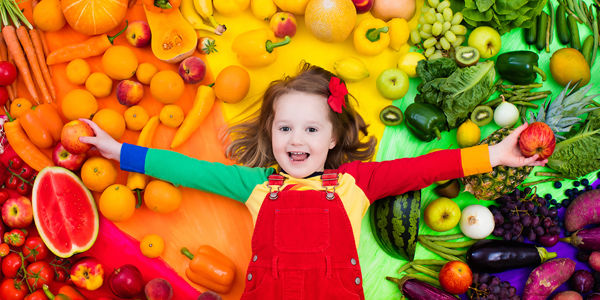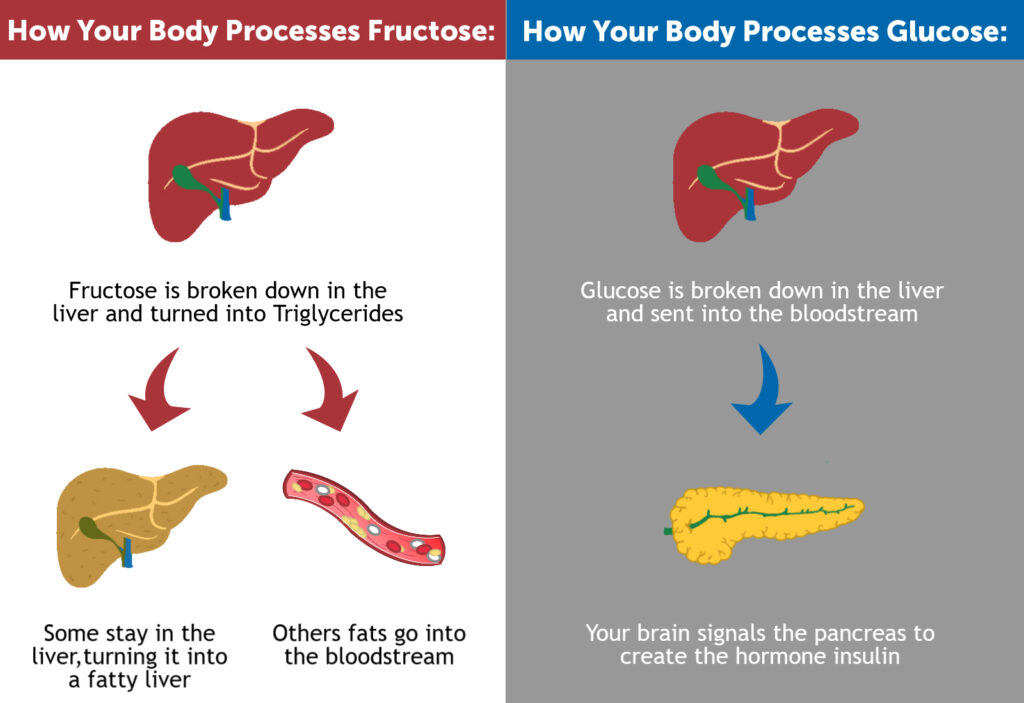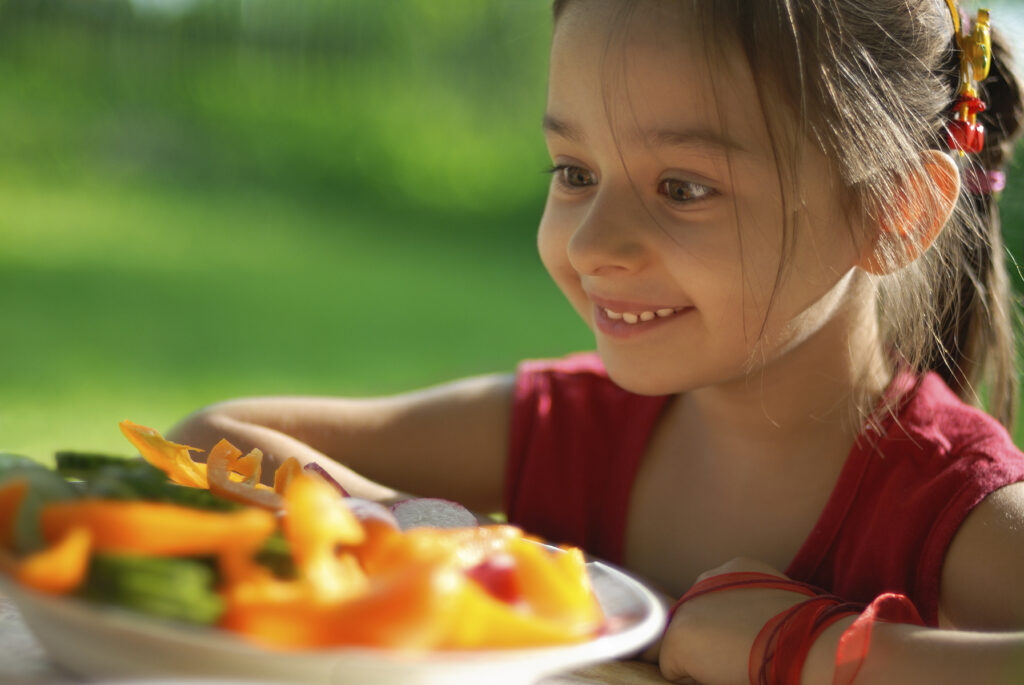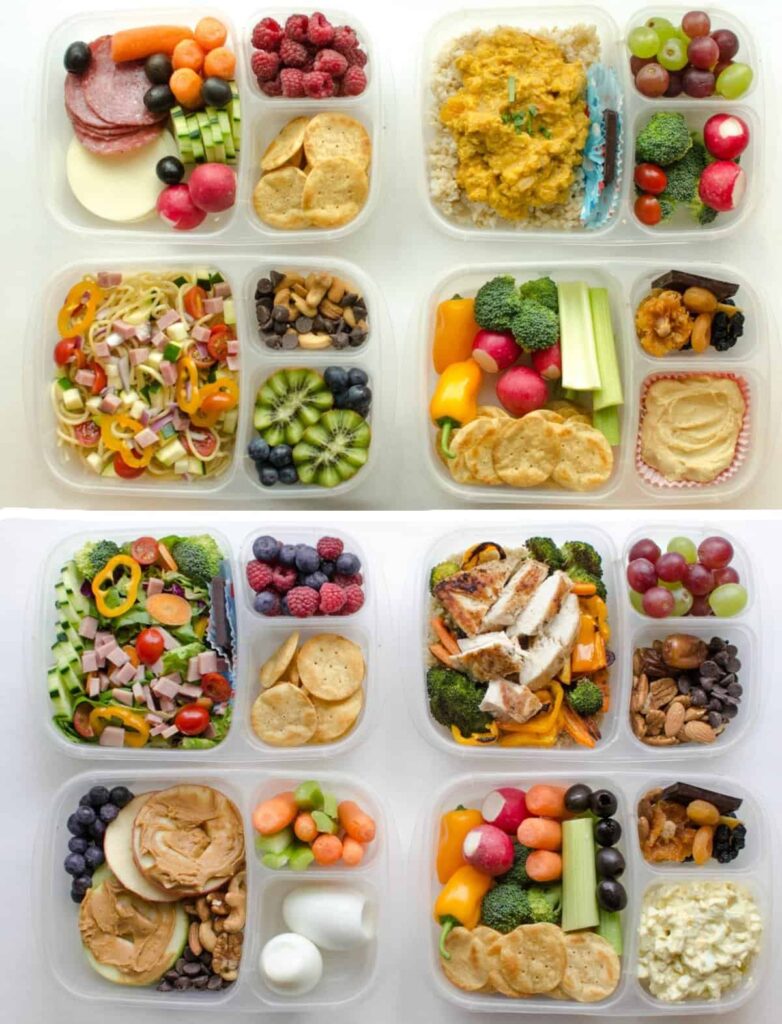Child Nutrition: A Key to Your Child’s Mental Health Development

In most parenting difficulties slideshow, there is the battle with a child to force broccoli down their throat as they turn their face and grunt in disgust. We’ve always been told that getting in lots of fruit, veg and healthy foods are important. What might not be known is how important it is to our health. The final post of our nutritional mini-series is directed towards parents and how to approach nutrition with your children.

As mentioned in the first post of our mini series, healthy foods such as fruit and vegetables help us develop more types of bacteria in our stomach, known as microbiota. This means that the more types of fruit and veg we eat, the more different types of bacteria we gain in our stomach, which not only protects us from more diseases but also directly interacts with neurotransmitters in our stomach, which make us feel better. So healthy eating doesn’t only directly impact our physical health. It also collides with our mental health. Another important finding with this research is that the food pyramid is slightly outdated because it’s not about how much of a certain food we eat, but rather, how many different kinds. Variety is key.

On the other end of the scale, we know that sugar is unhealthy for our children but do our children care? Not a chance! What doesn’t help is that sugar is everywhere, from our ‘healthy’ cereals to our Chinese takeaways. It has been found to be as addictive as cocaine and as detrimental to our health as cigarettes. For example, sugar has been found to accelerate the risk of breast cancer four fold. And it really is everywhere! Glucose, sucrose, fructose, dextrose, corn syrup, starch, the list goes on. But it is important to know the difference between these sugar types. Glucose, for example, is a really important source of energy that is metabolised by the entire body, but fructose can only be broken down in the liver. This means that when the liver is overloaded, the excess is then turned to fat, hence why overconsumption of sugar leads to obesity. Fruits actually contain fructose as well but when combined with its fibre, it is naturally occurring so it never overloads the liver.

So why do we still eat so much? Well let’s educate ourselves on what happens our brains when we eat sugar. As soon as sugar touches our taste buds in our tongues, it activates the reward areas of our brains and releases neurotransmitters such as dopamine. These receptors then unconsciously tell us that we should eat another double chocolate chip cookie. This same reward system is also activated during sex and drug frenzies. If this occurs from a young age, children develop a lack of control and an increased tolerance to sugar. As mentioned, there are also brain receptors in our gut too. This means the same thing happens in our gut when we eat sugar but the dopamine takes over and the gut’s role in telling us that we are full is overwritten. Alternatively, broccoli releases no dopamine, which is why your child will push those greens away. According to the World Health organisation, it is only advised that you have 25g of sugar a day or 5% of our daily calories but sugar is found in 75% of the 600,000 products in our supermarkets. It’s no surprise that obesity is now a bigger problem than starvation.

However, education isn’t the only bump in the road. Influencing your child’s nutritional habits is difficult. Nine times out of ten, children will accept the sick feeling from eating 20 chocolate bars on Halloween over the latest psychological research. How uncool! We have a few minor tips to help your children move away from being picky eaters. Firstly, get your children eating varieties of food from a young age, regardless of what you personally eat. At a young age, they might not like certain foods but they are not aware that they have a choice not to eat it. You can also help them out by making food tastier with mixes of salt and spices. If they eat strange foods from a young age, various foods won’t be as difficult to eat when they get older. The golden Mammy’s rule: If you’re hungry, you’ll eat it.

Then, change the way we organise your meals. Every household has a tendency to plan their meals around a protein such as meat or fish rather than a vegetable. Instead, change how we cognitively restructure our meals and say we are going to have broccoli today and butternut squash tomorrow instead of chicken today and fish tomorrow. Get your child involved in the meal planning and ask them what vegetable they would like this evening. Give them the choice!
But what if your child is already 12, they’re picky eaters and it doesn’t matter how you organise a meal? This is when we revert back to our negotiation skill of trust (earlier blog post). This involves an appreciation of the importance of nutrition for mental health development. Some parents will accept that children are picky eaters because their academics or happiness is more important. However, it is essential that parents realise that good nutrition will not only lead to better health but it will also majorly aid your child’s academics, and happiness. So don’t underestimate it. Going back to trust, negotiate with your child. And this isn’t particularly new. Use sugar! If you eat your vegetables, you can have ice cream. However, once this step is established, then it is about them independently eating good food. Put carrot sticks in their lunchbox and if they eat them, they get a chocolate bar the next day. Remember, trust. And yes, they might be throwing those carrot sticks straight in the bin, so ask their teacher to keep an eye out. If they are tricking you, then you won’t be treating them. Remember, trust.
Eating should be tasty, not shameful
On the other end of the scale, we often hear about the high achieving parents trying to perfect their child’s nutrition. If my child removes their intake of sugar, carbs and gluten, they will fulfil their full potential and become the president of the world! However, there is a big problem here. When we are pushing our child’s nutrition continuously, we make them conscious of their body image. This is because their body is how they measure their success of meeting these rules. When we ban foods like gluten or sugar, we also create an arena for shame (the emotion where individuals judge themselves for something they see as wrong) to manifest in. Remember that the teenage brain is not fully developed, which is why they are more prone to be impulsive and make mistakes. This means that if you ban a food type, this ban has a high likelihood to be broken. This results in an obsession about the food.
Ban on food type + breaking the ban = shame and obsession about food.
For example:
Parents ban chocolate. Underdevelopment of child’s prefrontal cortex = Child will eat chocolate. Ban + Child Eating Chocolate = Shame and Obsession About Chocolate
This shame combined with this obsession is the foundation of an eating disorder so we need to be careful. Furthermore, another problem that might crop up is emotional eating, where children and adolescents regulate their emotions by overeating unhealthy foods. This is not a good way to deal with your emotions and might also form the foundation for an eating disorder. And finally, the English language has let us down with its failure to differentiate between the word diet meaning what we eat, and diet meaning a restriction of food. You should never tell your child they cannot eat anything when they are hungry. Nutritionist Laura Thomas speaks about the term of intuitive eating here, which has been discussed before. This concept posits that we should eat when our gut tells us we are hungry and we should not eat when our gut tells us we are full. This is something that needs to be learned and involves aspects of mindfulness and paying attention to your body. So in short, promote your child to eat as many foods as they like but obviously moderate their intake of unhealthy foods and more importantly, never ever ban a food on a child, restrict eating when they are hungry or accept eating as a way to regulate their emotions. Instead, tell them to listen to their gut and be intuitive eaters and find a better way to regulate their emotions such as cognitive behavioural therapy.
So in conclusion, healthy eating is crucial, fructose is the devil and your children won’t eat healthy but would happily swim in fructose forever more. Welcome to parenthood. In order to get your child eating those fruits and vegetables, we have offered some tips such as getting children eating variety from a young age, negotiating through trust and basing meals around vegetables. However, our most important piece of advice is to never ban food. A piece of cake or a chocolate bar is part of a balanced diet too!
Yours Sincerely,
The Motus Movement.